Should you open windows this winter? Air quality experts warn it's a vital winter 2025 maintenance task you should never skip
Blasts of fresh air will prevent mold and condensation issues

Punteha van Terheyden

You'll be forgiven for thinking opening windows regularly is better reserved for when it's bright, warm, and sunny outside. But did you know it is just as beneficial in winter, too?
Air quality experts say knowing how often to do so over winter can help solve several common seasonal household complaints, including mold and musty smells, as well as actively combating condensation buildup.
Here, they detail why you should open windows in winter to improve air quality indoors, and how to do it without freezing or sending your energy bills rocketing.
Should you open windows this winter?
Yes, you should. Not only does opening windows in winter reduce condensation, but it can drastically improve the quality of the air you breathe, too.
As the days grow shorter, our homes can start to feel a bit stuffy. The common belief is that you should keep every window sealed tight to conserve heat, but air quality experts reveal that regularly airing out your home is one of the most vital winter maintenance tasks you should never skip.
Knowing how to properly ventilate can resolve common household problems like musty odors, mold growth, and condensation buildup. This, in turn, can improve your health by reducing CO2 levels and airborne germs, boosting your mood, and even helping you sleep better.
Jon Gilbertson, president and CEO at Chris Heating & Cooling, says, 'While it’s common advice to avoid opening windows in winter to conserve heat, doing so can actually enhance your home's atmosphere.
Design expertise in your inbox – from inspiring decorating ideas and beautiful celebrity homes to practical gardening advice and shopping round-ups.
'Consider opening windows selectively based on air quality needs, such as after cooking or cleaning, to release odors and contaminants. This approach not only supports better indoor air quality but also gives your heating system a break, as it can help regulate humidity levels, preventing the air from becoming too dry. Just remember to open windows for shorter periods to minimize heat loss.'
It's a common practice in Europe, with Germans doing what's known as shock ventilation. These short, daily bursts of cold air refresh indoor air quality without letting too much of your heating out or sending your energy bills skyrocketing.
A quick ventilation session can be particularly beneficial after hosting guests or if you've been doing a lot of indoor cleaning and cooking.
Dan Fauzi, Homes & Gardens' home tech editor, adds, 'Moisture in the home, especially in the winter months, can lower your air quality by raising the humidity levels with potentially harmful effects on your skin, breathing, and even your home. Opening a window slightly overnight can release some condensation, as will turning on the heating at a few points throughout the day.
'But to pull moisture from the air directly and quickly, get yourself a dehumidifier, like the ALROCKET Dehumidifier at Walmart, which is small enough to take from room to room where it's needed.'
A simple cross breeze for just a few minutes will also help clear the air of lingering smells and particulate matter, leaving your home feeling clean and refreshed for free.
Opening your windows this winter isn't just about smell, though; it's about your well-being. Good air quality can help improve focus, reduce headaches, and even contribute to better sleep, which is a reason you should consider sleeping with your windows open in winter, too.
How to open windows without freezing in winter
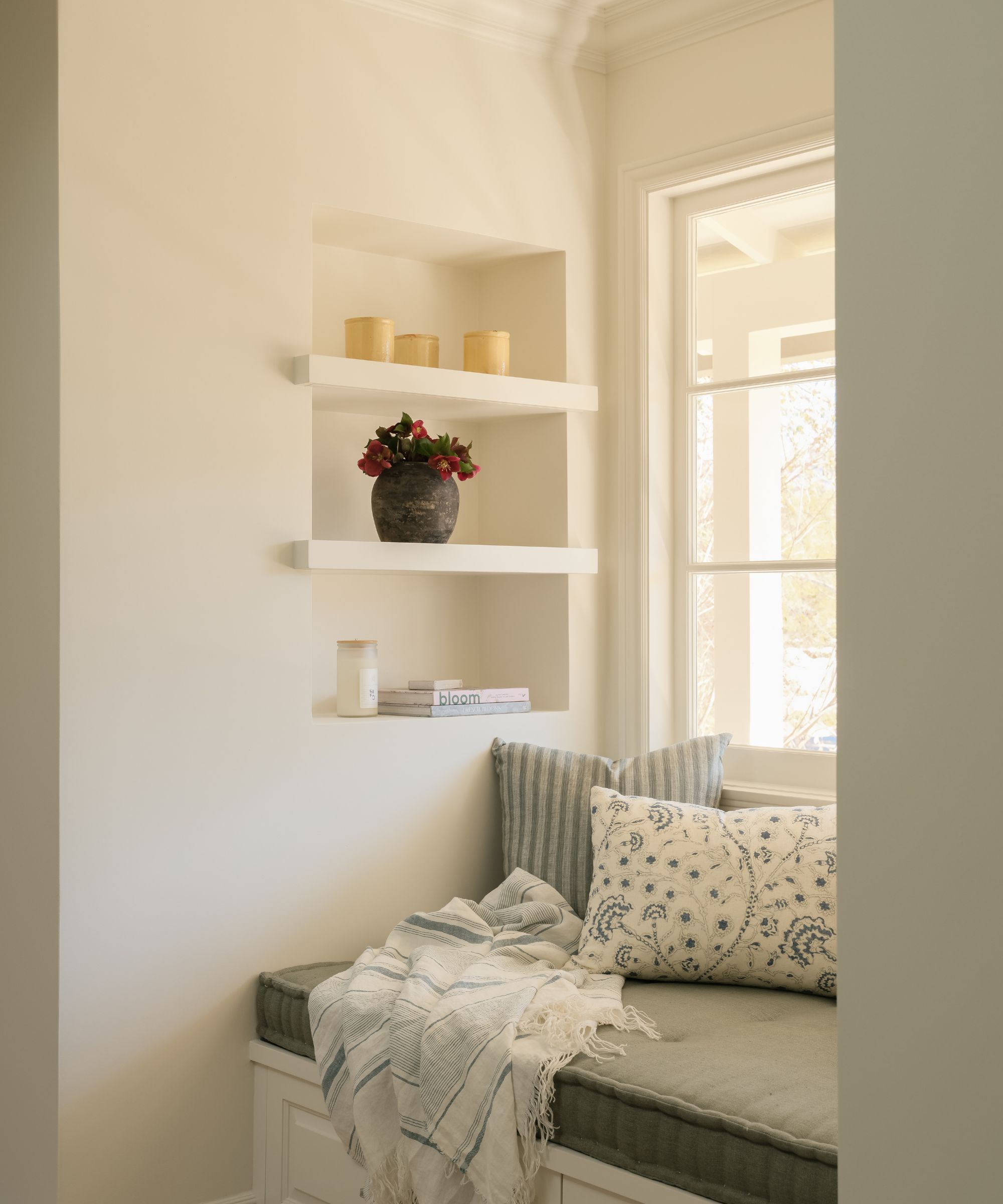
Keep it short and sweet
- Open windows in short bursts daily. This is especially in helpful in high-humidity or high-function spaces such as bedrooms, bathrooms and kitchens where moisture levels are often higher.
- Open windows or doors briefly when the room is sunniest to reduce the impact on bills.
- It doesn't have to be for long: Five minutes will do.
- Creating a cross draft will quickly improve ventilation and air quality in multiple rooms in one go, but keep it brief, as this will cool down your home, too.
Of course, opening windows in winter is not as simple as opening them in summer. Comfort and heating considerations should be taken into account in the colder, wetter and windier months.
Leaving the windows open for too long could send your bills sky-high and leave you shivering in your own home. To help cut energy bills and make your heating more efficient, there is a technique to follow, says Max Veggeberg, CEO at Tetra.
He explains, 'If homeowners need to open their windows to improve air quality, we recommend no longer than a few minutes and during the warmest part (sunny afternoons ideally) of the day to reduce heat loss.'
Jon Gilbert, HVAC expert, adds, 'This is especially important in high-traffic areas [such as your bedroom] or rooms with stale air. This method allows fresh air to circulate without causing significant heat loss.'
Pay attention to where the sun is at various times in the day, for instance, a south-facing bedroom will likely have sunshine mid-morning, whilst a north-facing home office will be sunnier in the afternoon. Setting repeat reminders on your phone or digital calendar is a helpful way to get into the rhythm of opening your windows briefly throughout winter.
Another good approach to clear out stale air is to open windows on opposite sides of the house, creating a cross breeze that will push old, humid air out more quickly, reducing how long you need to leave the windows open.
This can also work in a 'chimney' effect, if you open a window or door upstairs, and another one downstairs, with all internal doors propped open to avoid them slamming shut as the cross-draft kicks in.
Dan Fauzi, adds, 'Things like cooking, vacuuming, and burning candles and incense can lower your air quality as they send fumes, VOCs, dust, and other pollutants into the air over winter. Open the windows during these moments to allow for better ventilation and use the extractor fan when cooking.'
To keep your indoor air really clean, Dan adds that you'll need an air purifier and recommends the Shark NeverChange MAX, which is the best air purifier we've tested. Dan adds, 'It pulls in air and removes these contaminants, including almost all the allergens that cause symptoms and any lingering odors, thanks to its HEPA and carbon filters.'
Installing a smart thermostat, such as the Google Nest available at Amazon, will help you to control your heating bills, too, allowing you to easily control your heating so that it does not turn on while the windows open to make your home more energy efficient.

Open windows briefly when the sun is on the room to prevent excessive heat loss
If you live in a very cold climate, or with vulnerable people such as children or the elderly, and it is not safe or convenient to open windows in the dead of winter, there are alternatives.
Jon Gilbert, HVAC expert, says homeowners can 'install an air exchange unit designed specifically for cold climates. These systems pull in fresh air while retaining heat from the outgoing air, maintaining indoor warmth.
'Alternatively, consider using smart sensors to keep track of your indoor air quality. They automatically adjust ventilation systems and/or air purifiers based on real-time data, ensuring optimal conditions.
'Plus, you can incorporate natural odor absorbers like activated charcoal or baking soda in key areas,' he adds. 'These materials can neutralize smells, such as getting rid of musty smells in a bedroom, and reduce the need for external air exchange.'
While there are ways to improve ventilation in your home in winter, there is no denying that investing in the best air purifier is your best bet. Be sure to choose the right air purifier for your home based on the size of your space for maximum efficiency.
What to shop
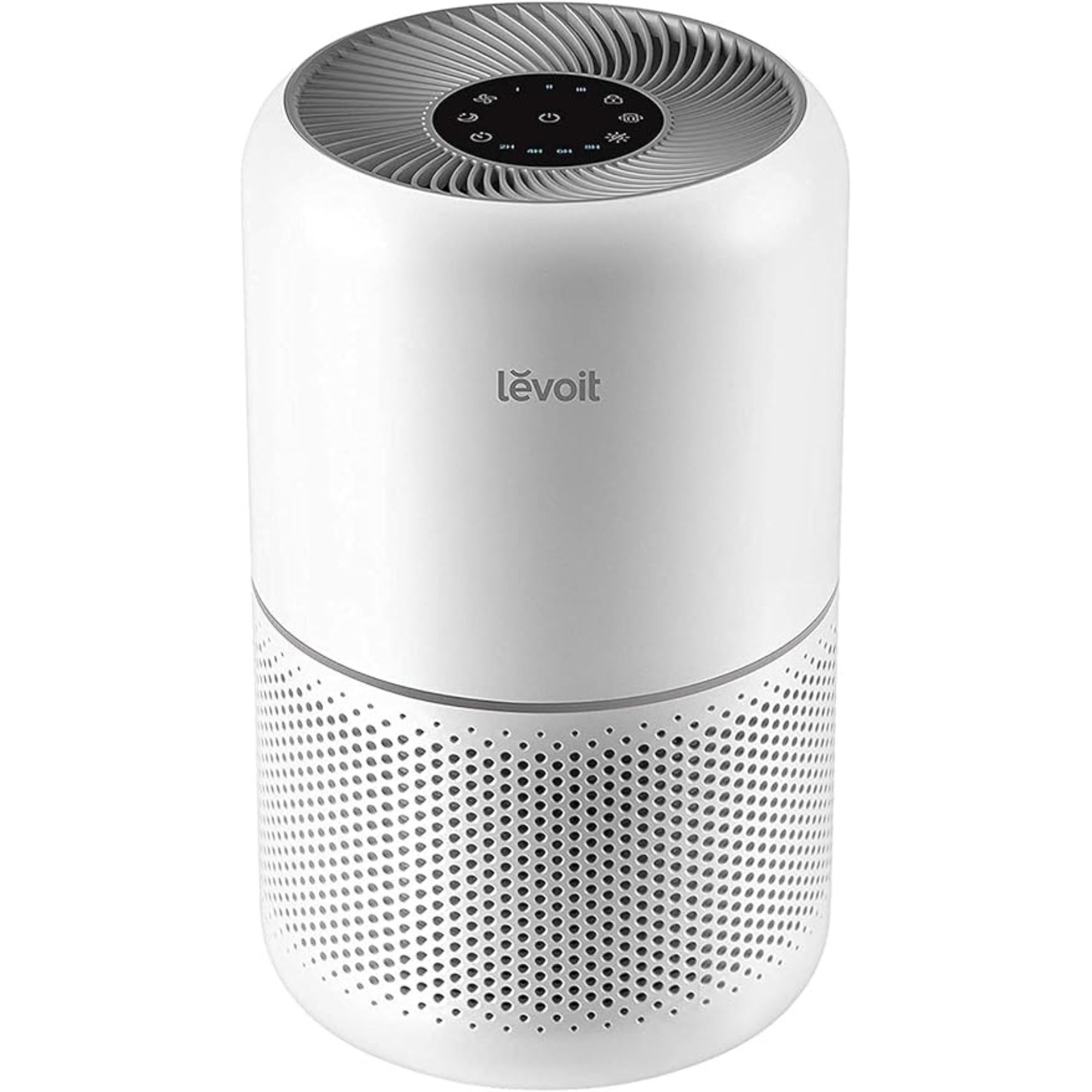
With the Levoir Core 300, you can purify a 350 sq. ft. family room in as little as 20 minutes. This machine incorporates QuietKEAP technology to minimise noise and air resistance.

Compatible with Alexa and Ring security, this smart thermostat is perfect for integrating into existing smart home setups for ultimate control over your home's heating bills.
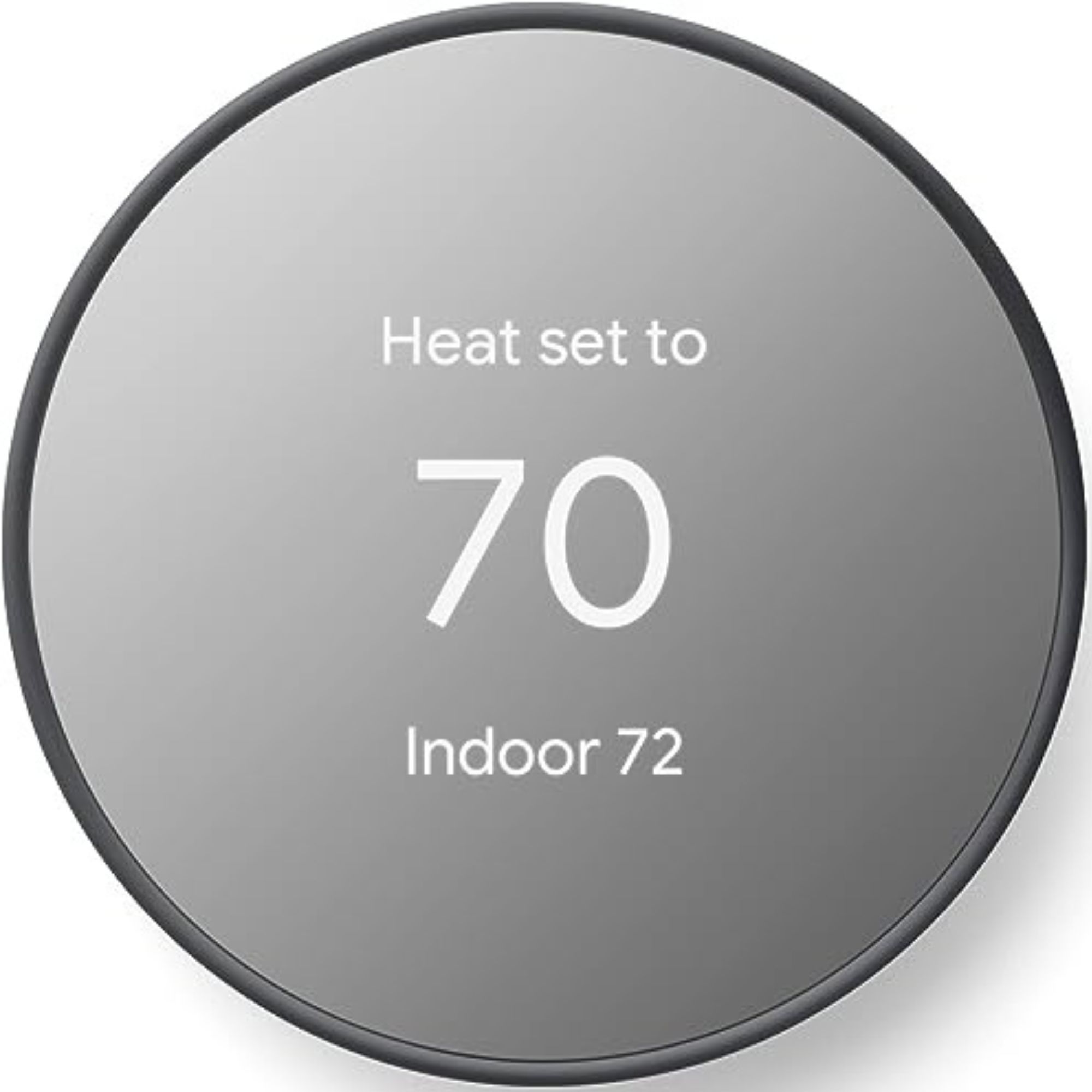
Be it winter or summer, this smart thermostat works with both heating and cooling systems to keep your home the perfect temperature year-round. Running an HVAC system on a smart thermostat reduces bills.

With customizable routines that conserve energy, this smart thermostat is a great way to stay on top of energy bills in winter.
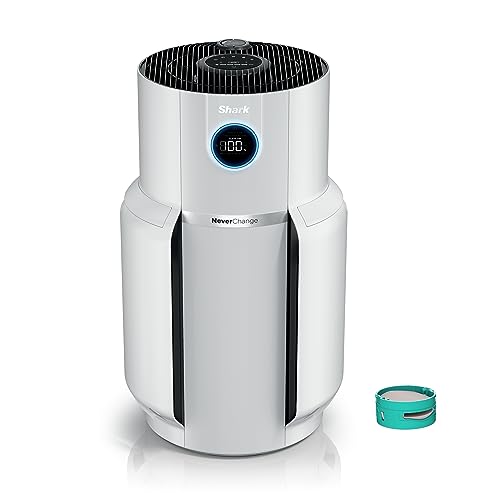
Rated by Homes & Gardens as our best air purifier, the Shark NeverChange has an air filter that lasts up to five years to help you save money. It will reduce the volume of dust and dander that settles on surfaces and needs cleaning, too.
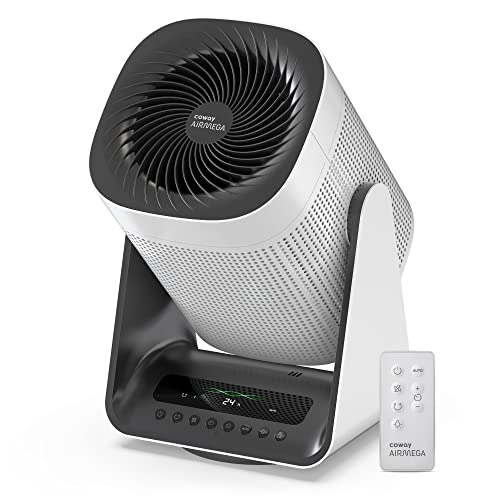
The Coway Airmega Aim packs a punch, especially at this price point. With a fan that rotates horizontally and tilts vertically, you can aim where you need purified air.
FAQs
Should all rooms be ventiled daily in winter?
That might negatively impact your energy bills, so it's best to rotate the rooms you ventilate, and work to prioritize the areas that naturally carry more moisture due to the nature of use, and are in sunshine at various points of the day. For instance, bedrooms can gather moisture and smells overnight, as can kitchens and bathrooms in daily use.
Will opening my windows in winter cause my pipes to freeze?
In short, yes. But only if you leave windows open for extended periods of time, which will lower your home's temperature too much and lead to a risk of pipes freezing, especially if the pipes are situated somewhere that will expose them directly to cold drafts.
This may also be more risky on a particularly cold and windy day, as increased air movement will wick away heat from pipes even more quickly.
Keep ventilation short and sweet. A few minutes will do the job without risking frosty pipes.
A word of warning, however: avoid ventilating at length in winter in rooms without a heat source, for instance, a hallway without a radiator.
Should I open my windows in winter if I live in a very humid climate?
Cold outside air, even in high-humidity areas, will typically have less moisture than warm indoor air. Keep ventilation periods short and avoid it when it's misty or raining as that concentration of humidity outside will likely exceed your indoor environment's.
Does opening a window in winter help with dry air?
It might seem counterintuitive, but yes, it will help. Reducing the humidity of indoor air will help your skin feel less dry, ironically.
Have you noticed how having your heating on can dry out your lips in winter? Allowing fresh air to circulate daily will reduce this side effect.
Not opening your windows in winter is also a bad habit increasing the risk of mold in your home, especially at a time when they heating is on and the air inside is humid.
No matter the heating costs, opening them for just five minutes a day is more than worth the payoff. Then, when closed, put your windows in winter mode for maximum heat retention.

Chiana has been at Homes & Gardens for two years and is our resident 'queen' of non-toxic living. She spends most of her time producing content for the Solved section of the website, helping readers get the most out of their homes through clever decluttering, cleaning, and tidying tips. She was named one of Fixr's top home improvement journalists in 2024.
- Punteha van TerheydenHead of Solved